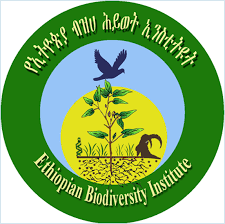Institute Intensifies Efforts to Conserve Animal, Plant Species - ENA English
Institute Intensifies Efforts to Conserve Animal, Plant Species

Addis Ababa, May 3, 2025 (ENA) ---The Ethiopian Biodiversity Institute (EBI) is intensifying its efforts to conserve animal and plant species, encompassing endemic varieties, through a range of robust conservation strategies.
In an exclusive interview with ENA, Deputy Director General of the Institute Abiyot Berhanu stated that the institute operates a large gene bank at its headquarters, housing over 92,000 plant genetic samples.
Beyond plants, the institute also preserves genetic material from diverse animal species and thousands of microorganisms.
Abiyot explained that the EBI employs both off-site (ex-situ) and on-site (in-situ) conservation methods to safeguard biodiversity. Special attention is also given to species with significant economic, medicinal, industrial, and nutritional value.
“For species that cannot be stored in cold storage, and for those that are socially and economically vital, we have established Field Genebanks across different regions,” he added.
He cited examples such as the conservation of coffee at the Choche Field Gene Bank in Jimma and at Bedessa, the largest coffee gene bank in Harar, as well as medicinal plants at the Goba Gene Bank.
Attributing the research and study data, Abiyot mentioned that more than 6,029 main various plant species are found in Ethiopia. Of these, 10 percent are endemic, including coffee, teff, and other tree plants.
According to the information obtained from the institute, Ethiopia stands as a primary gene center for several field crops, including noug (Guizotia abyssinica), tef (Eragrostis tef), and Ethiopian mustard (Brassica carinata).
Furthermore, the country harbors significant genetic diversity in other important field crops such as barley, sorghum, durum wheat, finger millet, faba bean, linseed, sesame, safflower, chickpea, lentil, cowpea, fenugreek, and grass pea.
Ethiopia boasts a remarkable array of animal life, including approximately 284 mammal species and an impressive 861 bird species. The reptile population is also significant, with 201 identified species, encompassing over 87 snakes, 101 lizards, and 13 species of tortoises and turtles. Furthermore, the country is home to around 188 fish species, 324 butterfly species, and 63 species of amphibians.
The deputy director general further noted the presence of numerous endemic animal species, including a variety of insects such as butterflies and beetles, adding that new species continue to be discovered.
He emphasized that maintaining a healthy ecosystem and conserving its biodiversity are crucial for sustainable agricultural development. Regarding endangered plant species like the olive tree, Cordia africana, Hagenia abyssinica, and Afrocarpus, he underscored that a legal framework has been established to protect them by prohibiting their cutting.
Furthermore, Abiyot indicated that Ethiopia's gene bank houses climate-resilient and disease-tolerant crop species, noting that improved seeds derive at least 80 percent of their inputs from the Ethiopian Biodiversity Institute gene bank.
He further noted that the institute is actively collaborating with relevant domestic and international organizations to accelerate its efforts in conserving all biodiversity resources, which aims to protect the ownership rights of species originating in Ethiopia, following international legal frameworks.
The institute is currently preparing to commemorate the International Day for Biodiversity 2025 under the theme "Harmony with nature and sustainable development" through various events.